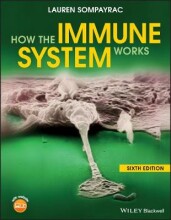Gluten sensitivity - Background of the disease
9 important questions on Gluten sensitivity - Background of the disease
What happens to the intestine of CD patients?
What symptoms do people with CD have?
- Malabsorption problem --> osteoporosis, anaemia (due to iron deficiency)
- Skin disorders --> dermatitis herpetiformis (DH)
How was CD diagnose before?
- Gluten-free diet, biopsy to check for recovered intestinal mucosa
- Daily portion of 10 g gluten for 4 weeks. Another biopsy taken, damaged mucosa
- Higher grades + faster learning
- Never study anything twice
- 100% sure, 100% understanding
What are diagnostic tests to establish CD?
- Serologic tests, IgA-anti-endomysium (IgA-EMA) and IgA-anti tissue transglutamiase (IgA-tTG) antibodies
- A small bowel biopsy establishing the absence of villi remains the golden standard
- With a strict gluten-free diet both the symptoms of Celiac Disease and the histological changes in the intestinal mucosa should disappear
- Positive genetic marker(s)
Do CD patients always have symptoms?
Which genes are present in 90% of the CD patients?
Why does the presence of DQ2 not predict well for CD?
- CD is the result of an interaction between the environment (gluten exposure) and a genetic susceptibility
- CD is a polygenetic disease, exposure to gluten is a prerequisite to acquiring the disease
What is the toxic mechanism of CD?
- Gluten peptides reach the gut epithelium
- (partly) deaminated by an enzyme, tissue type transglutaminase (TTG)
- Specific gliadin or gluten peptides are able to bind to an antigen presenting cell (APC)
- This cell presents the antigen to a CD4 T-cell, which becomes activated and produces signals that activate both
- plasma cells (production of anti IgA and TTG)
- lymphocytes
- Activation of T cells is thought to start a cascade of reactions that lead to damage of the intestinal epithelium
What is the difference between an IgE-mediated allergy and CD?
- no antibodies involved
- 1 single binding peptide is sufficient
- adverse reaction delayed
- lifelong disease
IgE-mediated allergy
- antibodies involved
- at least 2 binding sites must be present
- adverse reaction fast
- can be transient, doesn't have to be lifelong (cow's milk and soy)
The question on the page originate from the summary of the following study material:
- A unique study and practice tool
- Never study anything twice again
- Get the grades you hope for
- 100% sure, 100% understanding




























